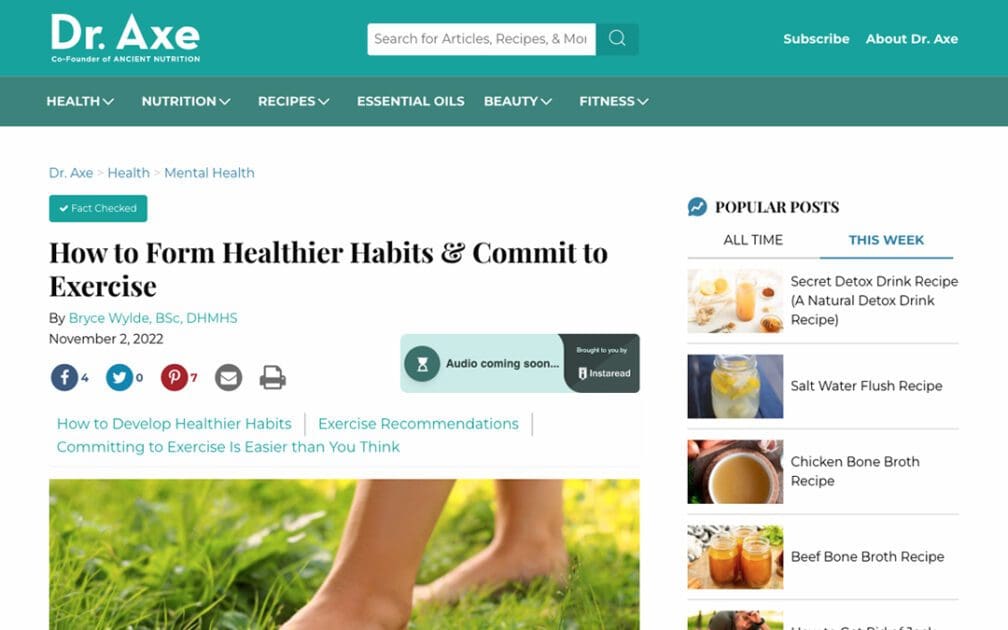The latest edition of the World Happiness Report has some troubling news: Stress is on the rise and mental health is on the decline worldwide. Research shows that American adults have been getting less happy since 2000 while adolescents have been suffering higher rates of sadness since 2010. Nutritional biochemist Shawn Talbott offers tips to help you lead a lifestyle that supports a well mind and body.
Get active. As Talbott explained in Runner’s World magazine, exercise is good for your brain chemistry. The Mayo Clinic reports that exercising for about 30 minutes, three to five times a week, can help relieve depression symptoms. You don’t need to become a gym rat to see benefits. According to Harvard Health, moving for a few minutes more each day may help improve mood.
Take care of your microbiome. The gut microbiome plays a major role in mental wellness. “These bacteria represent a second brain that communicates with – and even directs – many of the activities in our first brain,” explains Talbott. “Your gut creates most of the serotonin, dopamine and other neurotransmitters responsible for your mood.” Show your microbiome some love by choosing fermented foods, adding a probiotic to your routine and being mindful of antibiotic use.
Boosting your fiber intake also supports your gut health, and may do more than just keep you regular. “It can also act as a prebiotic, which means it feeds the good bacteria in our gut,” explains Talbott. Boost your intake by eating more fresh fruits and veggies, whole grains, nuts and seeds. Many health professionals suggest fiber supplement. “I like soluble guar fiber, available over the counter as Sunfiber, because it has been shown in more than 120 clinical studies to support digestive health without the uncomfortable side effects,” said Talbott. The Institute of Medicine recommends 25 to 38 grams of fiber each day, but most Americans get less than 15 grams.
Mind your vitamin D. Research shows that higher levels of vitamin D may lead to lower depressive symptoms. According to the Vitamin D Council, recommended amounts of skin exposure to the sun vary by skin type, where you live and season. “In places like Boston, Salt Lake City or Seattle, exposure to solar ultraviolet rays isn’t strong enough in winter to fuel vitamin D production in the skin. In this case, popping a vitamin D supplement in winter can help you avoid deficiencies since you aren’t getting enough naturally.”





